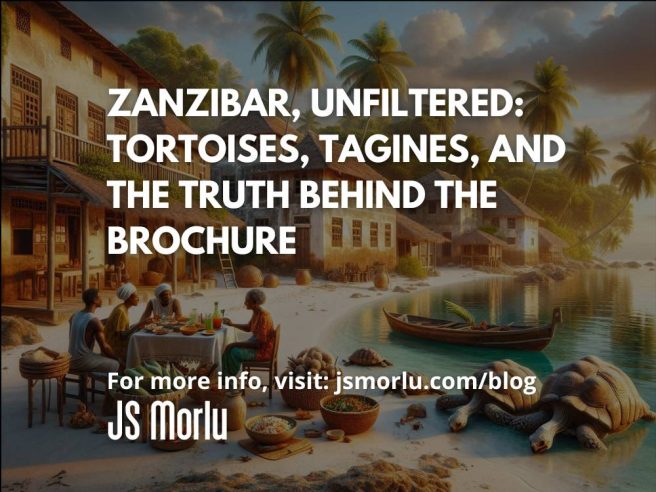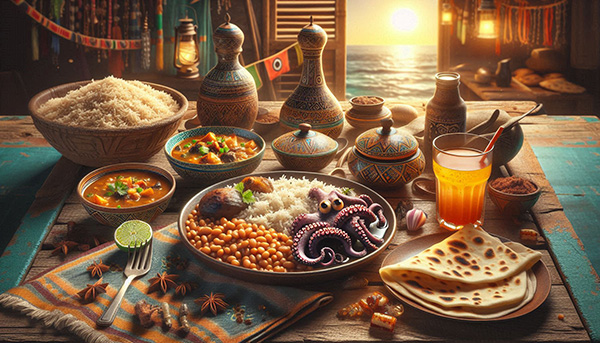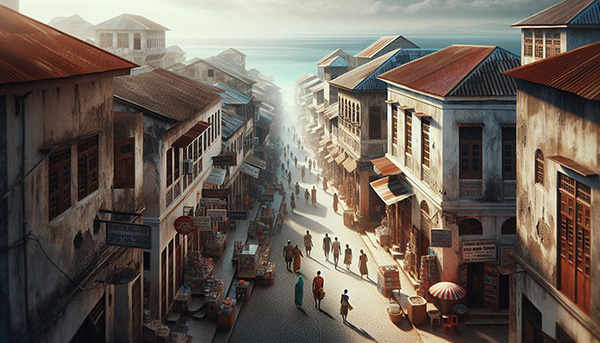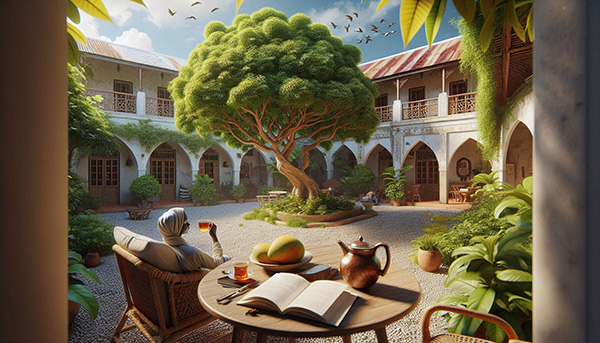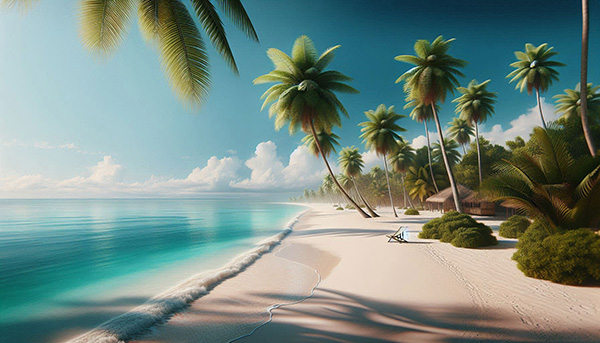By: John S. Morlu II, CPA
Just spent 3 days in Zanzibar. Beautifully peaceful, polite people — and completely PR. Yep, the ads and influencers make it look like paradise. But behind the filters and beach photos is a place that’s poor, with old, crumbling buildings. It feels like time stopped in some areas. You’ll see homes with weathered coral stone walls, fading paint, and wooden balconies that creak with stories from another century. It’s not fake — it’s just raw and real. Authenticity isn’t always pretty, but it teaches you something.
Now, let’s talk food.
The food is surprisingly amazing — maybe even the best along the entire Indian Ocean coast. Think about that. Better than Kenya, better than Mauritius, better than Seychelles. Why? Because Zanzibar is a true historical crossroads. For over 1,000 years, the island has been a hub for Arab traders, Swahili-speaking Africans, Indian merchants, and Portuguese and British colonizers. All left a culinary fingerprint. That’s why your plate might include pilau rice, coconut bean stew, chapati, grilled octopus, and tamarind juice — all at the same meal.
Zanzibar’s food tastes like history. And not the boring textbook kind — the juicy, spicy, exotic kind. Fun fact: Zanzibar was once the world’s largest exporter of cloves, earning it the nickname “The Spice Island.” Today, you can still walk through spice farms and smell vanilla, nutmeg, turmeric, and cardamom growing in the sun.
Language? Good luck!
Many people don’t speak English — or French, or any language tourists might expect. Swahili is the main language, and it’s spoken with a local Zanzibari flair. In rural areas and local neighborhoods, English is rare. But even without shared words, people are kind, helpful, and never aggressive. You’ll find that a smile, a wave, and a little patience go a long way.
Religion? Very Muslim.
About 99% of Zanzibar’s population is Muslim — mostly Sunni. That Islamic influence is visible and audible everywhere. Five times a day, the adhan (call to prayer) echoes through towns. Many women wear modest dresses and hijabs. Alcohol is not widely available outside of tourist areas. Public displays of affection are frowned upon. But here’s the interesting part — despite being deeply religious, Zanzibaris are remarkably tolerant, respectful, and welcoming to visitors from all walks of life. There’s a quiet dignity in the way faith and hospitality coexist.
Stone Town? More like Stone Hamlet.
They call it a “town,” but really, the residential population of Stone Town has dropped to around 500–1,000 people due to rising rents and tourism. Most of the original Swahili and Arab families have moved out to suburbs like Bububu or Mbweni. What’s left is a maze of narrow, winding streets filled with souvenir shops, cafés, rooftop lounges, and hotels.
But don’t skip it — Stone Town is a UNESCO World Heritage Site, famous for its carved wooden doors, coral stone architecture, and deep blend of African, Arab, Indian, and European influence. The doors alone are iconic — some over 200 years old, with brass spikes once used in India to stop war elephants (ironic, since Zanzibar never had elephants). You’ll walk through alleys that once saw spice traders, slaves, sultans, and missionaries pass through.
Where I stayed: Oasis Blue.
Nice, clean, and simple. A good value stay with a relaxed atmosphere. Not a luxury resort, but peaceful — the kind of place where you can read a book under a mango tree, sip spiced tea, and hear birds instead of traffic. It’s outside the loud tourist spots but close enough to explore.
Sightseeing moment: Salam Cave
While exploring, I met a lady from New Jersey at Salam Cave, a small but interesting coral cave in the outskirts. It’s not a major tourist stop, but locals visit for spiritual reasons and healing waters. We joked about the Aldabra tortoises you see in Zanzibar. I said, “You can see tortoises in the U.S. too — at a zoo, for cheap — and maybe get a hot dog and souvenir cup with it.” She laughed. It’s true. The tortoises here are majestic, ancient, and… a bit overpriced.
Tortoises in Zanzibar? Yup.
At Changuu Island (Prison Island), you’ll find giant Aldabra tortoises — some over 150 years old. Originally gifted by the British governor of Seychelles in the late 1800s, these tortoises now roam freely in a protected sanctuary. They weigh up to 250 kilograms and love leafy greens. Be gentle — they’re not fast, but they are gentle giants, and yes, they love tourists with lettuce.
History flash: Prison Island was never actually a prison.
Though it was built as a prison for rebellious slaves and later for quarantine during cholera outbreaks, it was rarely used for either. Today, it’s more of a tortoise kingdom and snorkeling destination with some of the bluest waters around Zanzibar.
Overall vibe?
Zanzibar is quiet and calm. It’s not rich. It’s not loud. But it has soul. The brochures will show the beaches — and yes, they are stunning. White sand, turquoise water, palm trees swaying like they’ve been trained in yoga. But the deeper treasure is the vibe. You’ll feel like time slowed down here.
Zanzibar is not for everyone. If you want malls, nightclubs, and designer shops — go elsewhere. But if you want to hear waves instead of Wi-Fi notifications, if you want meals that smell like history, and people who greet you with Karibu sana (you are very welcome), this island will charm you in ways you didn’t expect.
About the Author
John is an entrepreneur, strategist, and founder of JS Morlu, LLC, a Virginia based CPA firm with multiple software ventures including www.FinovatePro.com, www.Recksoft.com and www.Fixaars.com . With operations spanning multiple countries, John is on a mission to build global infrastructure that empowers small businesses, entrepreneurs, and professionals to thrive in an increasingly competitive world. He believes in hard truths, smart execution, and the relentless pursuit of excellence. When he’s not writing or building, he’s challenging someone to a productivity contest—or inventing software that automates it.
JS Morlu LLC is a top-tier accounting firm based in Woodbridge, Virginia, with a team of highly experienced and qualified CPAs and business advisors. We are dedicated to providing comprehensive accounting, tax, and business advisory services to clients throughout the Washington, D.C. Metro Area and the surrounding regions. With over a decade of experience, we have cultivated a deep understanding of our clients’ needs and aspirations. We recognize that our clients seek more than just value-added accounting services; they seek a trusted partner who can guide them towards achieving their business goals and personal financial well-being.
Talk to us || What our clients says about us

